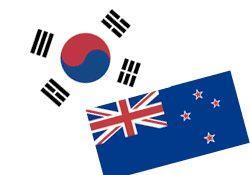
Free trade negotiations between South Korea and New Zealand are making headway, with a meeting on Monday between the two countries’ leaders yielding positive comments on improving trade relations.
Korean president Lee Myung-bak and New Zealand prime minister John Key met yesterday as part of a New Zealand delegation to South Korea.
In a joint statement released after the meeting, the two agreed improved trade relations would benefit both nations, an agreement that has been welcomed by New Zealand’s kiwifruit industry.
Korea is one of New Zealand’s top six kiwifruit export markets, but single-desk marketer Zespri currently pays a 45 per cent tariff in the market.
A trade deal between the two countries could be worth up to NZ$34m (US$23.3m) to the New Zealand kiwifruit sector, according to Zespri, and would boost the country’s competitive position.
“The challenge we have in Korea is that our main competitor, Chile, already has a free trade agreement,” explained Zespri board chairman John Loughlin, who is travelling with the Prime Minister’s delegation.
“Zespri pays a 45 per cent tariff. Chile pays a 16.5 per cent tariff, which declines at four per cent a year until it reaches zero in 2014.
“Zespri has a superior quality product, and superior marketing and service support. A free trade agreement with Korea will allow us to compete on a level playing field, and win the market based on our premium quality fruit.”
New Zealand kiwifruit has experienced strong growth in Korea over the last few years despite the tariff handicap.
A NZ$30m (US$20.5m) investment in promotion activities over the last five years has given Zespri a lead in the market, as has local production of Zespri Gold kiwifruit for the Korean market on the island of Jeju in New Zealand’s off season.
Trade between New Zealand and Korea hit US$1.7bn last year.
Korean farmers’ concerns about New Zealand meat have been blamed for the slow progress of the free trade negotiations of late, reported Arirang News.
The country is New Zealand’s second-largest market for beef, and a key market for other meat products, which face tariffs of 40-72 per cent.






No comments yet